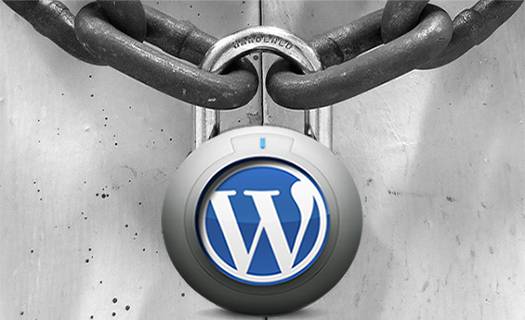How to Secure WordPress Websites
WordPress is a open source content management system which we can use to build beautiful websites and blogs online. WordPress has its own built-in security measures which are not easy to exploit. But still it will be better to take extra measures and know some ways to Secure WordPress websites. Today I come up with 10 Tips to SecureWordPress Websites. These tips doesn’t include any rocket science by still they matter in security of your WordPress Website. Let’s talk about 10 Ways to Secure WordPress Websites:
Ways to Secure WordPress Websites
1. Protecting Admin Access - Protecting Admin Access is the first step in making sure that your WordPress website is secure. You should change your login username often. You may also want to know How to remove reset password option from the login page. Getting the username is often the first step of hackers to try to hack your website.
2. Protecting Password - As you have your own website, you know that you should not share you Password with ANY ONE in any case. Create your password with combination of letters upper case and lower case, numbers and symbols. Try to create your password as difficult as you can. Change your password often. And remember you should never have same password for 2 different websites.
3. Stay Updated - WordPress regularly updates its software to improve its performance. Every update includes some security and performance improvements. You should update your copy of WordPress software as soon as possible. Hackers will have enough time to play and know about your website if you don’t update it for long time.
4. Prevent Brute Force Attacks - Hackers use robots which guess your WordPress Password and attempt to login. To Secure WordPress Website, you should check the IP addresses of failed login attempts. If you are seeing large number of failed login attempts from same IP them you are facing brute force attack. Lock out that IP address and be alert for next time.
5. Backup Website Data - Any problem can occur at any time. You should be ready about getting your website up again. For example one day suddenly your website crashes and you lost all of your data. It may happen because of hosting problems or due to hackers. That’s why you need to have a backup of your WordPress data base, files, plugins and media files etc, then you can easily get your website back again.
6. Secure Your Computer - To Secure WordPress Website, you should also ensure the security of your computer. Daily scan your computer for malware , spywares and virus infections. Don’t ever download any suspicious file from internet. Many of these files now a days include key-loggers which can help hackers gain your passwords. You should have an updated Antivirus and Internet Security Program installed. Using a protected web browser and browsing good reputable websites is also very important.
7. Encrypted Login Plugin - Use WordPress Security plugins to secure WordPress website. Use encrypted login page with strong captcha verification process. Try using WordPress plugins for securing/changing login page URL.
8. Reliable & Reputable Hosting - You should choose reputable and well-known hosting company to host your website. If you are on shared hosting ask your hosting company to take extra precautions for security. Good hosting providers always take care of security of accounts under their servers. Reputable hosting companies uses security software to ensure customer security.
9. File Permissions - Restricting File permission will help you to secure WordPress website. If you need to allow write access, then create specific folders with less restrictions. You can follow the below permissions and the permissions can vary on the basis of requirements.
The WordPress administration area (/wp-admin/): Writable only for user account.
The bulk of WordPress application logic (/wp-includes/): Writable only for user account.
User-supplied content (/wp-content/): Writable by all owner, users, group, and public.
Theme files (/wp-content/themes/): Depends on requirement. For using built-in theme editor, need group writable. Otherwise, only user account.
Plugin files (/wp-content/plugins/): Writable only for user account.
The bulk of WordPress application logic (/wp-includes/): Writable only for user account.
User-supplied content (/wp-content/): Writable by all owner, users, group, and public.
Theme files (/wp-content/themes/): Depends on requirement. For using built-in theme editor, need group writable. Otherwise, only user account.
Plugin files (/wp-content/plugins/): Writable only for user account.
10. Avoid Public Wifi - Many hackers use automated password harvesting tools to get passwords and access to others personal websites. Therefore while using public wifi don’t login to your WordPress Admin panel. Or if you do this, then be sure that you have enabled HTTPS on your browser.
This was all about How to Secure WordPress Websites. I hope it will help you in protecting your website from hackers.


Blogger Comment
Facebook Comment